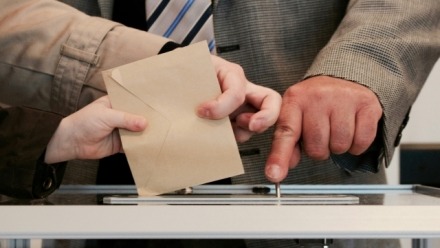Opinion: How Trump could shape our election

By Mark Kenny
A version of this article was originally published by The Canberra Times.
Three times last week I was asked to discuss on radio the growing chances of an early federal election. Just days before, most media had been certain the Prime Minister's "broken promise" was a career-limiting error. Work that one out.
For Australians, it must feel surreal. Didn't Albanese, Wong, Chalmers and Gallagher just get here?
Three-year terms were short(ish) a century ago when the news "cycle" still spent its evenings in the shed. Now, with unctuous breakfast TV and perennially campaigning pollies in our faces every day, governments seem to age in dog years.
Generally speaking, voters don't love early polls - partly because of the inconvenience but mostly, I suspect, because they suggest a government focusing on itself rather than the nation. Yet the rule of thumb is that prime ministers go when they think they will win.
The game here for prime ministers is weighing known risks against risks unknown - that is, events that blow up from nowhere to derail best-laid plans. For a 2024 date to be worth the transactional cost, favourable circumstances would need to prevail - stabilising prices and falling energy and housing costs - coupled with a well-founded optimism that the storm has passed. That cost-of-living pressures will remain low.
To match Senate terms, the latest the Prime Minister could call an election is in April, 2025, but with a March election in Western Australia, that would probably condemn Sandgropers to months of more-or-less continuous hyperbole. They may not appreciate that out west, the state whose five seat changes in 2022 put Labor into majority. The successful defence of four of those is existential for Anthony Albanese.
The main second-tier election occurring this year is Queensland set for October 26 but federal Labor has so few holdings north of the Tweed that it might figure the only way is up. The sunshine state is Dutton country, after all. Labor made no headway in 2022 despite a very decent swing. But talk of complicating factors for Albanese obscures something else: how Peter Dutton's all-the-way-with-the-USA barracking might come to be viewed against the craziness of an American presidential race on November 5.
An overseas election wouldn't normally be a factor in our politics but Bruce Wolpe, an expert on US politics, thinks Australian voters fear and loathe Donald Trump in equal measure and could turn away from a candidate seen as too eager to fall into his seemingly narcissistic orbit.
Wolpe, a former aide to Julia Gillard, says Australians will be watching the Trump-Biden contest and hoping for an outcome that emphasises reliability and global security. That means firm commitments from Washington to liberal democracy, the global rules-based order, and multilateralism.
Trump has flagged withdrawing from NATO, and boasts he will solve the Ukraine war in 24 hours. He has promised to close the US border and to undertake the greatest rate of expulsions in American history. He praises ruthless autocrats Vladimir Putin, Xi Jinping, Viktor Orban and Kim Jong Un as "strong", "brilliant" and as "very fine people". He told Fox News last month he will not be a dictator himself "other than on day one" and will ditch emissions rules in favour of his "America first" fossil fuels plan to "drill, drill, drill".
It is anyone's guess what this all means for Australia's nuclear submarine ambitions, America's presence in the Pacific, and much more.
"The issue in the election here is which of the two leaders will be seen as more effective and determined, and [who] will stand up more firmly against Trump pressures that cut across this country's national interests and values. Right now, I believe that is the PM," Wolpe says.
"I think there will be a profound reaction here, and that most Australians will want a buffer against Trump and Trumpism."
Presumably, this is a concern that will just keep growing as Trump's reprise defies moral logic and political gravity. Tellingly, both the GOP and the Democrats are desperate to cement him as the Republican nominee though (or in Biden's case, perhaps because) polls show Nikki Haley would defeat the ageing President in a head-to-head contest.
An astonishingly vulnerable candidate, the President escaped prosecution on Friday for possessing classified documents (as an ex-VP) not because he was found to be definitively innocent, but infirm.
As one adroit observer wrote to me: "He can't be exonerated from criminal charges on the basis of being 'an elderly man with a bad memory' while also being cognitively capable of being president."
Several days ago, Biden couldn't recall the terrorist organisation Hamas during a press conference, eventually plumping for "the opposition". On Friday, when discussing Gaza, he described President El-Sisi of Egypt as the president of Mexico.
If, perish the thought, Trump is returned before our election, Australian sentiment would likely harden as the reality of the American's vengeful second term unfolds.
Remember, the Coalition leader has already signalled Australia's involvement in a US war over Taiwan, backed US recognition of Jerusalem as Israel's capital, given unqualified support for Israel's obliteration of Gaza - branding Wong's calls for restraint "reckless" - and backed greater Australian participation in the US operations in the Red Sea.
Voters would have to decide if they wanted a prime minister who respectfully asserts Australian strategic interests or surrenders yet more of our foreign policy to Washington.
Mark Kenny is a professor at the ANU Australian Studies Institute and host of the Democracy Sausage podcast.










